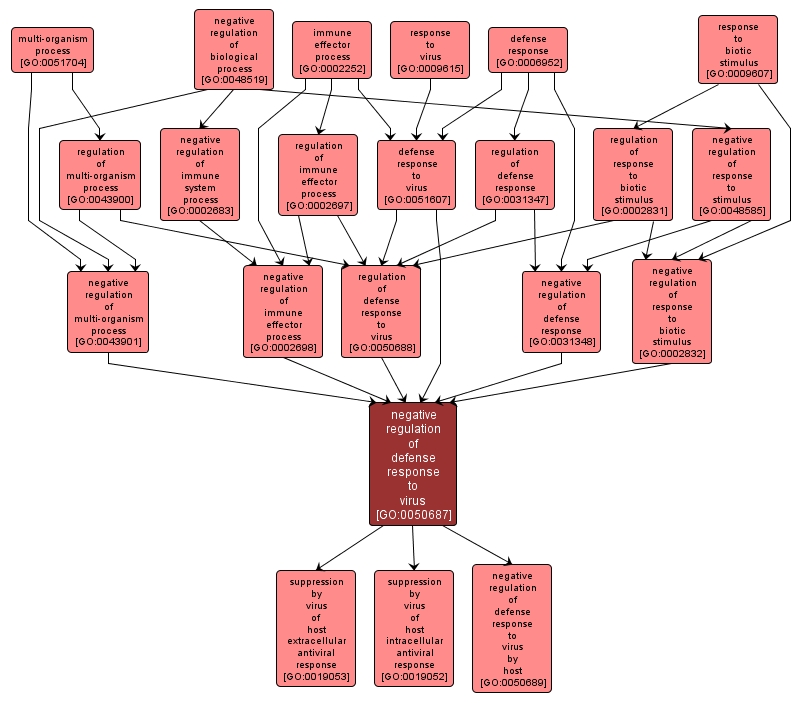GO TERM SUMMARY
|
| Name: |
negative regulation of defense response to virus |
| Acc: |
GO:0050687 |
| Aspect: |
Biological Process |
| Desc: |
Any process that stops, prevents or reduces the rate or extent of antiviral mechanisms, thereby facilitating viral replication. |
Synonyms:
- down regulation of antiviral response
- down-regulation of antiviral response
- downregulation of antiviral response
- negative regulation of antiviral response
- inhibition of antiviral response
|
|

|
INTERACTIVE GO GRAPH
|














